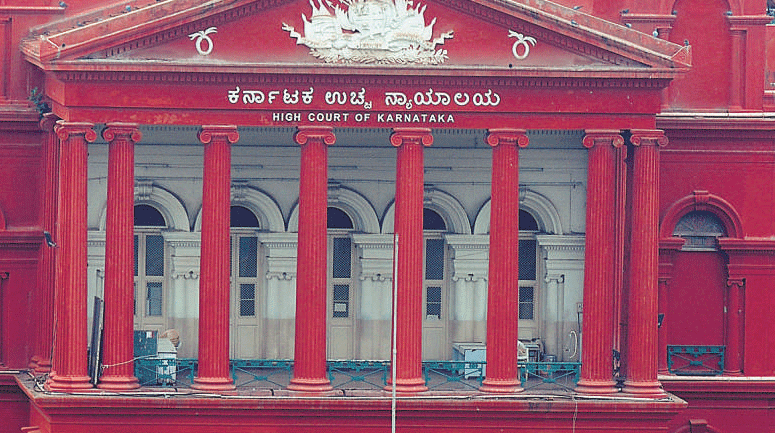
Karnataka High Court
Credit: DH Photo
The High Court has observed that every police officer has to be vigilant while registering a complaint under the Atrocities Act.
Justice M Nagaprasanna said this while quashing the proceedings against the petitioners - Raghavendra B Nayak, Associate Professor and Mahesh Desai, the then in charge Director of Dharwad Institute of Mental Health and Neurosciences (DIMHANS).
The petitioners stated that the complainant, Ramesh Babu, Professor at Raichur Institute of Medical Science, is in the habit of registering crimes against his superiors, for all disputes relating to service or conditions of service. It was further submitted that one such complaint registered against the retired directors of DIMHANS was quashed by the High Court in 2019.
The petitioners contended that the state government issued an order deputing Ramesh Babu permanently as Professor of DIMHANS. The petitioners had protested this order and the then in charge director had also litigated against the complainant’s permanent deputation from Raichur to DIMHANS. Ultimately, the state government withdrew the order of transfer in 2020. According to the petitioners, Ramesh Babu challenged this withdrawal in the High Court and in the interregnum went on registering crimes against the petitioners, who had objected to his entry into DIMHANS.
After perusing the materials, Justice Nagaprasanna noted it is a case of gross misuse and abuse of the provisions of the Atrocities Act.
“These are cases which are projected as cases of Atrocity, while in effect, they are the cases which are used by the petitioner, a person belonging to Scheduled Caste to settle his personal scores against persons who have come in the way of his career progression albeit legally. There is not an iota of ingredient present of all the offences that are alleged against the petitioners. The petitioners are now made to suffer for having objected to the entry of the complainant into DIMHANS, which the government itself accepts and withdraws the order of transfer. These acts of the petitioners by no stretch of imagination can be construed to be offending any of the provisions of the Act,” the court said.
The court cited Ghulam Mustafa and State of Karnataka and others case wherein Apex Court had indicated that the officers are duty-bound to be vigilant before invoking any provision of a very stringent statute (Atrocities Act), which imposes serious penal consequences on the concerned accused. The Apex Court had also said that the officer has to be satisfied that the provisions he seeks to invoke prima facie apply to the case at hand.
“The case at hand becomes an apt illustration to what the Supreme Court has observed. A clear service dispute between the petitioners and the complainant is dressed with a colour of atrocity and multiple crimes are registered by the complainant. Therefore, if further proceedings are permitted to continue, it would become an abuse of the process of the law, result in patent injustice,” the court said.